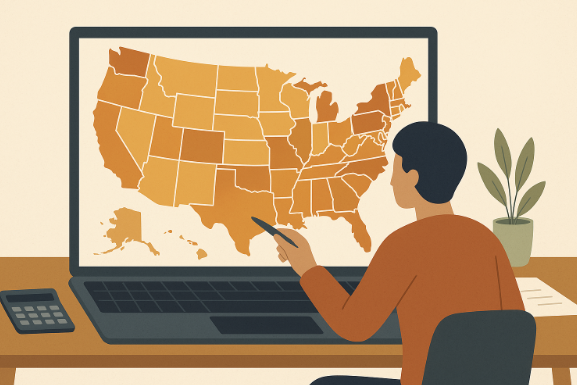If you’re preparing to purchase a home this year, there’s an important expense you’ll want to plan for—closing costs.
Most buyers know they exist but aren’t always clear on what’s included or how much to expect. Understanding these costs upfront can help you budget confidently and avoid surprises on closing day.
What Exactly Are Closing Costs?
Closing costs are the additional fees and charges due when you finalize your home purchase. Every buyer pays them, though the exact amount can vary widely. According to Freddie Mac, these costs typically cover services such as:
Homeowner’s insurance
Title insurance
Loan application and origination fees
Credit report fees
Appraisal and inspection charges
Property survey
Attorney or settlement agent fees
Think of them as the behind-the-scenes expenses required to transfer ownership and secure your loan safely and legally.
Why Closing Costs Vary So Much
When you research online, you’ll often see national estimates that say closing costs run between 2% and 5% of a home’s purchase price. That’s a helpful starting point, but it doesn’t show the full picture.
Your actual costs will depend on factors like:
Local taxes and government fees — Transfer taxes, recording fees, and property taxes vary by city and state.
Regional service pricing — Costs for title work, attorneys, and inspections differ from one market to another.
State laws and requirements — Some states require certain legal services or additional insurances that increase the total.
For example, in some areas, you might pay just a few thousand dollars in closing costs, while in others the bill could exceed $10,000. That’s why getting advice from local professionals is so valuable—they’ll know what’s typical in your specific market.
How to Get an Accurate Estimate
Before you start shopping for a home, talk with a trusted real estate agent and lender. They can give you a clearer idea of what your costs will look like based on:
Your price range
The type of loan you’ll use
The local taxes and fees in your area
Having a personalized estimate makes it easier to save and plan ahead.
Tips to Help Reduce Closing Costs
If the total feels higher than expected, there may be ways to bring it down:
Negotiate with the seller. You can request a credit or concession toward closing costs.
Shop for homeowner’s insurance. Compare different providers to find the best coverage and rate.
Ask about assistance programs. Some states, professions, and communities offer help with closing expenses.
Your agent and lender are excellent resources—they know what’s available locally and how to apply.
The Takeaway
Closing costs are an essential part of buying a home, but they’re not one-size-fits-all. By understanding what they include and how they’re calculated in your area, you can plan ahead, avoid last-minute stress, and even find ways to save. Connecting with knowledgeable local professionals will give you the clearest picture and help you step into homeownership with confidence.



